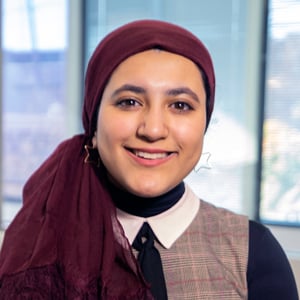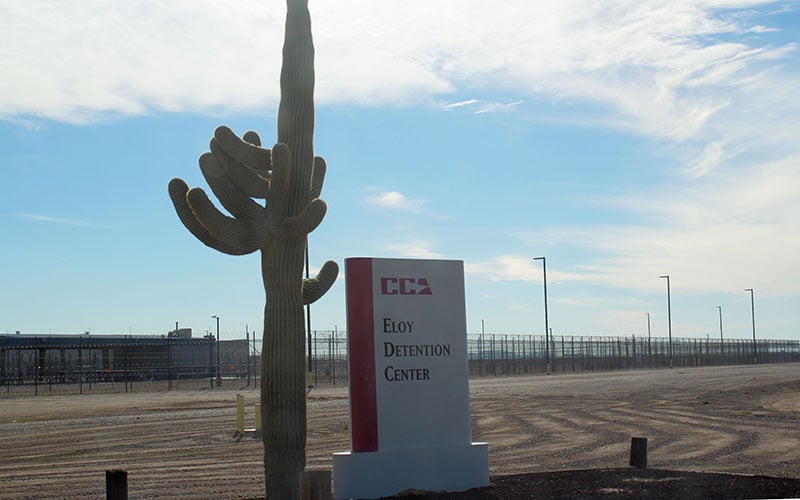PHOENIX – The head of the private company that runs a migrant detention center in Eloy told a House panel Monday he is “immensely proud” of its operations, even as lawmakers questioned its response to the COVID-19 crisis.
CoreCivic CEO Damon Hininger was one of four private contractors who testified before a House Homeland Security subcommittee Monday on their operation of detention facilities for Immigration and Customs Enforcement – contracts that are worth billions, committee Democrats noted.
Throughout the roughly three-hour virtual hearing, the contractors insisted that conditions in the detention centers are “safe” for both detainees and employees and that they are following health and safety guidelines from the Centers for Disease Control and Prevention.
“Since the pandemic began we have worked quickly to execute the guidance of the CDC and our partners,” Hininger testified. “I believe the practices and the measures CoreCivic has implemented in our facilities have prevented further transmission of COVID-19.”
But most committee members appeared skeptical.
“It is clear that ICE and its contractors have not taken this outbreak seriously and have not treated it aggressively enough,” said Rep. Kathleen Rice, D-New York, the chairwoman of the subcommittee.
ICE data shows that in the current detainee population of 22,835 migrants there are 949 confirmed cases of COVID-19, part of the 3,183 cases identified since testing began in February.
The Eloy Detention Center currently has 116 infected detainees, out of a total of 250 since testing began. That is the most among ICE facilities in Arizona, where the La Palma Correctional Facility has reported a total of 100 cases, the Florence Detention Center had 36 and CCA Florence Correctional Center had had 15 cases, according to ICE.
In addition to detainees, Hininger said nearly half of 300 CoreCivic employees at Eloy have tested positive for the virus.
“We did have about half of our staff, over the period of time of the pandemic, test positive for COVID-19,” Hininger said. “As of last week we had about less than 100 that were positive and we’re going through the appropriate protocols to self-isolate.”
Few Republicans attended the hearing, and those that did were not as confrontational toward the contractors. Rep. Debbie Lesko, R-Peoria, asked Hininger if he wanted to refute any reports about conditions in Eloy, including news reports that masks and gloves are rationed, because “the media is not always accurate and sometimes biased.”
Hininger replied that “the Eloy facility does have adequate supplies” and that all employees at the facility are required to wear masks, which is “recommended” for detainees. The other witnesses – representing GEO Group, Management & Training Corp. and LaSalle Corrections – testified that masks are required for both staff and detainees at their facilities.
The hearing touched on a variety of issues in the centers, from pre-admission testing to contact tracing, from ICE transfers of detainees between facilities to sanitation processes within the centers.

Immigrations and Customs Enforcement officers during an arrest this month in New York City. Privately run ICE detention centers for migrants came under scrutiny by a House panel Monday, which asked whether the contractors have done enough to protect detainees and employees from COVID-19. (Photou courtesy Immigration and Customs Enforcement)
Rep. Joe Neguse, D-Colorado, grilled GEO Group CEO George Zoley about reports that a chemical disinfectant being used at the Adelanto Detention Facility was being sprayed haphazardly in detainee living areas without safeguards. The chemical disinfectant, HDQ Neutral, carries specific warnings against exposure and use in enclosed areas but has been used at the California facility since May, according to the group Inland Coalition for Immigration Justice.
Zoley told Neguse the GEO Group would continue using HDQ Neutral, but committed to making sure it will be used in line with the manufacturer’s instructions.
Rep. Yvette Clarke, D-New York, challenged Hininger on the practice of “cohorting,” in which detainees who have been exposed to coronavirus are grouped together. CDC guidelines say cohorting should be used only “if there are no other available options,” that every detainee in the cohort must wear a face mask and that they be placed under medical isolation.
Scott Marquardt, CEO of Management & Training Corporation, defended the practice of cohorting in their facilities, calling it one of many practices he believed would help limit the spread of the virus.
Hininger did not answer Clarke directly, saying that CoreCivic “made big investments in our protective equipment, but also making sure that we have the appropriate staff that they feel comfortable and safe and they come into our institutions.”


